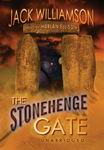
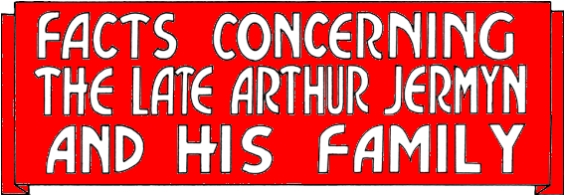

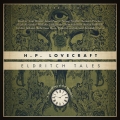 The SFFaudio Podcast #274 – Facts Concerning The Late Arthur Jermyn And His Family by H.P. Lovecraft, read by Gildart Jackson (this audiobook comes to us courtesy of Blackstone Audio’s Eldritch Tales). This is a complete and unabridged reading of the story (28 minutes) followed by a discussion of it. Participants in the discussion include Jesse, Mr Jim Moon, and Samantha Wikan
The SFFaudio Podcast #274 – Facts Concerning The Late Arthur Jermyn And His Family by H.P. Lovecraft, read by Gildart Jackson (this audiobook comes to us courtesy of Blackstone Audio’s Eldritch Tales). This is a complete and unabridged reading of the story (28 minutes) followed by a discussion of it. Participants in the discussion include Jesse, Mr Jim Moon, and Samantha Wikan
Talked about on today’s show:
The story was also published as Arthur Jermyn and The White Ape, Weird Tales, 1921, The Wolverine, the 1980s, “that’s not a big deal”, “our more enlightened times”, Lovecraft’s letter to Weird Tales, Rhodesia, “the Dark Continent”, “our brothers and sister in the jungle”, racism, Allan Quatermain, telegraphing the twist, is Lovecraft making a joke?, a more horrific reading, no Elder Gods, no Dreamlands, atavism and degeneration, great grandmother was a gorilla, miscegenation, bestiality, Dagon, Shadow Over Innsmouth, atavism, losing sanity points, Sir Wade Jermyn (African explorer with a “Portuguese wife” -> Philip Jermyn (a very agile sailor) -> Robert Jermyn (an anthropologist) -> Nevil Jermyn (runs off with a dancer) – > Alfred Jermyn (joins the circus) -> Arthur Jermyn (the poet scholar), Lovecraft became despondent when his family had to leave their home, Lovecraft’s mom said he was “exceedingly ugly”, Lovecraft’s father (died in an asylum), a tainted heritage, fear of degeneration, the ape goddess, diluting the noble bloodline, Arthur was the most unattractive one that was allowed out of the bedroom, Nevil’s siblings, a music hall singer of “unknown origin”, a lack of respect for the lower classes, below or above one’s station, a common sailor, the gamekeeper’s daughter, Winesburg, Ohio, Ray Bradbury’s inspiration for The Martian Chronicles, who is telling this story?, “demoniacal hints”, oppressive science, a future echo to Pickman’s Model, squamous eldritch adjectives, a gentleman in a club, “the gorilla boxing match death”, a smoking jacket holding court, clubman tales, Lord Dunsany, Arthur C. Clarke’s Tales Of The White Hart, Isaac Asimov’s The Black Widowers Club, Supernatural (1977 BBC TV series), “the club of the damned”, blood freezingly funny, “really ugly or unconventionally beautiful”, Arthur’s life story is quite sad, we really empathize with Arthur Jermyn, Victorian society, aren’t we all Arthur?, a lot of people probably don’t like the idea we are related to apes, maybe we should reject it even though its true, Douglas Adams “Earthmen are not proud of their ancestors and never invite them around to dinner”, digital watches, the ape city, hybrids, what of the other side?, S.T. Joshi’s reading, “that last clause is critical”, the white apes as the missing link, “the entire white race”, the only explanation, miscegenation assumes certain things, eugenics, “he married that ape”, “he made an honest ape of her”, the illustration from Weird Tales, how pretty was she?, the community’s contempt, judgements from a group of racist assholes, “that being said I’d rather be a poet than a sailor”, the butler, the servants, the black nanny, “the aged Soames”, the 1993 comic book adaptation by Stephen Phillip Jones, the visitor named “Seaton”, the only one who survives is Alfred, the adaptation goes off on this weird tangent -> The Terror Of Blue John Gap (first published in 1910), Samuel Seaton is in both stories (The Facts Concerning The Late Arthur Jermyn And His Family and The Terror Of Blue John Gap, She by H. Rider Haggard, a more realistic version of that story, Tarzan series by Edgar Rice Burroughs, the lost city of Opar (a lost colony of Atlantis), the John Carter books, this story is underrated, the humour and the pathos, not going into purple overdrive, the Jorkens tales, dry British wit, take off the Cthulhu blinkers, Jesse would like Mr Jim Moon to read aloud The Terror Of The Blue John Gap, Blue John (the mineral), Sir Arthur Conan Doyle, “obviously its insane”, Heart Of Darkness , Henry Morton Stanley, Dr. Livingston, Penny Dreadful is a mash-up of late 19th century horror fiction, Timothy Dalton plays a kind of Allan Quatermain kind of character, Mina Harker, demon possession, “raping their way across Africa”, the Grand Tour, “sending sons to the colonies for hunting, drinking, and whoring”, Sir Wade is the White God, the Congolese natives’ stories are all true, what’s in the box?, two statues?, a subterranean ocean, a fish man?, “I’m your great grandfather boy”, the Spawn of Cthulhu, “Deep Ones can mate with any species”, when we read Lovecraft we do a disservice to force connections to the Cthulhu Mythos, presenting it as a theory, “the locket!”, “what’s in the locket?”, the locket was empty, they threw the locket in a well, interpretations, stopping the spread vs. just being horrified, putting them over the percentage, “they had to make it not be”, having an ancestor delivered to your door, “Sir Wade collected things one wouldn’t ordinarily collect”, what did he bring back?, tending away from the Cthulhu Mythos, Cthulhu plushie, Lovecraft would never have said: “Sanity points?! Great idea!”, The Hound by H.P. Lovecraft (and it’s black museum), Lovecraft used the Necronomicon as “a backdrop and a reference and a flavour”, appreciating the stories as stories, it’s touching!
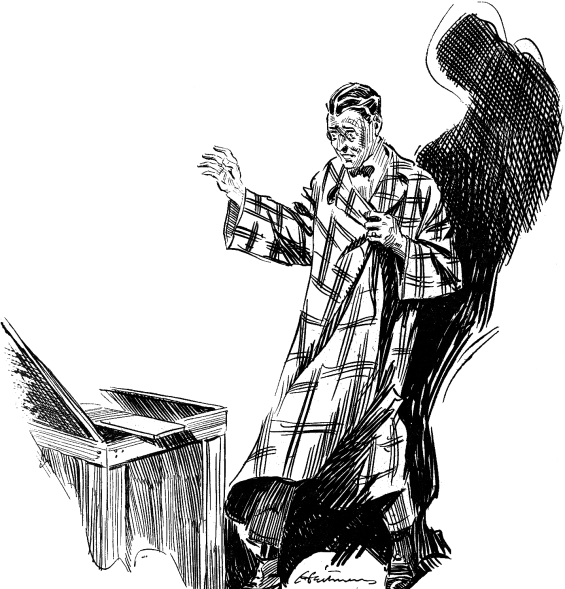
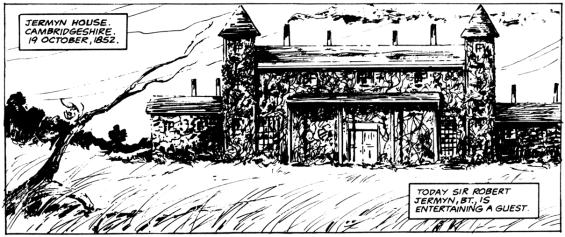
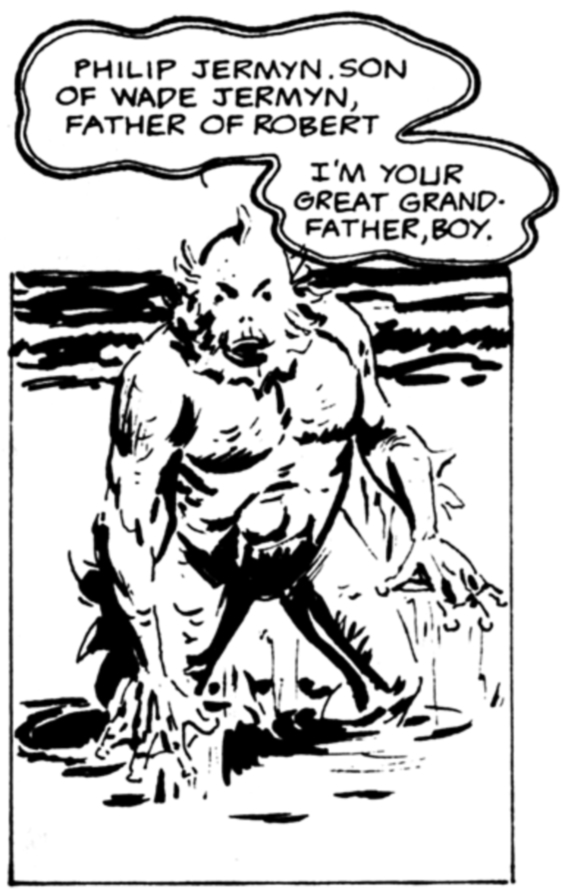
Posted by Jesse Willis




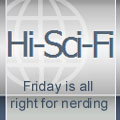
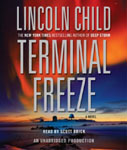

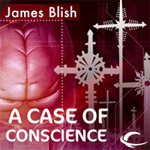
 A Case Of Conscience
A Case Of Conscience